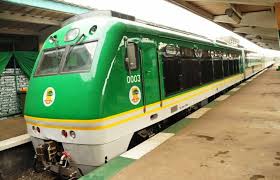Diesel Hike: NRC Reduces Lagos-Ibadan Trips To Two Daily
The hike in diesel price has forced the Nigeria Railway Corporation to reduce the number of trips on the Lagos-Ibadan Train Service by about 66.67 per cent, it was gathered on Tuesday.
It was also learnt that the corporation had sent recommendations to the Federal Ministry of Transportation for an adjustment in the transport fare on the train service.
The Managing Director, NRC, Fidet Okhiria, said that though the service was still running, its trips had been reduced due to the persistent hike in diesel price.
Diesel prices have risen by over 300 per cent in a few months, forcing transporters of petrol, who power their trucks with diesel, to threaten strike before the prompt intervention of the Federal Government.
The spike in diesel price also warranted some level of petrol scarcity in Abuja and neighbouring states, as many truck owners could not afford the high cost, a development that made the Federal Government to raise the bridging claims being paid to petrol transporters.
Speaking on the impact of the high cost of diesel in the rail sector, Okhiria said that the NRC had to cut down its trips, particularly on the Lagos-Ibadan route.
“The Lagos-Ibadan train service is running but we have reduced the number of trips on that route because of the diesel problem. We reduced the number of trips we are running because of the hike in diesel price,” he stated.
Asked whether the NRC would raise its transport fare as a result of the increase in diesel price, the corporation’s boss stated that it was outside the powers of the corporation to hike fares.
He explained that it was the responsibility of the Federal Government to make such decision, but noted that the NRC had made recommendations for adjustments.
Okhiria said, “We just can’t increase it by ourselves. The government has to do that. We have made some recommendations. But even the recommendations we made, the new price of diesel has overshot our workings as contained in the recommendations.
“However, we don’t want to price ourselves out of market too, because the price of petrol is not increasing as such, rather the increase is little when compared to diesel price. And you know we are competing with transporters on roads.”
Asked the number trips currently being done on the route, the NRC boss replied, “We are now doing two return trips as against six, which by now should have gone to 10. So we run just two trips now due diesel problem.”
Analysts at Financial Derivatives Company in their latest economic bulletin in August 2022 stated that headline inflation in Nigeria was set to surge again to 19.7 per cent due to the spike in diesel price, among other factors.
“The official headline inflation for July will be released on August 15. Our Lagos market survey and econometric model are indicating that there will be another surge of 1.1 per cent in headline inflation to 19.7 per cent,” they stated.
The analysts added, “If our projections are correct, it will be the 6th consecutive monthly increase and the highest inflation rate since 2006. Apart from the annual inflation rate, month-on-month inflation, which is a more current measure of price movements, is also expected to follow a similar trend, rising to 1.84 per cent (24.52 per cent annualised).
“The most potent causative factors for price inflation in Nigeria today are exchange rate pass through (N667/$), the knock-on effect of the sharp increase in the price of diesel (N780/litre) and to a limited extent the impact of money supply growth and saturation (N48.8trn).”
They, however, noted that the exchange rate weakness at this time appeared to be more potent than other causative factors.
“It has had a 76 per cent impact on the price level compared to diesel (11.6 per cent),” the FDC analysts stated.





